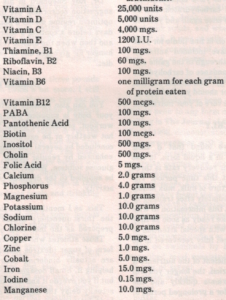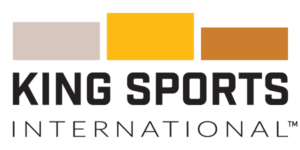Nutritional supplements and strength training: Part 2 – A different paradigm
What supplements should you be taking? If your said goal is to get bigger, stronger and or leaner, surely these are the supplements you should be focusing on? Those supplements that claim these specific benefits on their label and in their marketing? However what if it’s not this simple? What if there is more to it? What if there is a better way to achieve your goals through supplementation? The aim of this article is to encourage you to ask these questions, and guide you to possible answers.
Without a doubt the dominant focus in mainstream influences on supplementation for the strength training market is performance enhancement. However there is another consideration or category of supplementation, that I call ‘system support’.
The question is what is its respective role in the nutritional supplementation? That is how much focus should be placed on performance enhancement supplements and how much on system supporting supplements?
In Part 1 of this article series – The arrival of smoke and mirrors – I raised the question of whether your supplement selection has been fraudulently influenced by the perception that you may receive the same training effects as the drug support physique used to market the supplement. In Part 2 of this series, I raise questions about the focus of your supplement selection.
Two paths
In training the opportunity exists for an awareness of injury prevention versus performance enhancement, in a world fixated on performance enhancement.
As physical preparation consultants, we are involved in two main areas – firstly performance enhancement, and secondly injury prevention. Now those who are familiar with my teachings know I prioritize injury prevention…..[1]
In nutritional supplementation I raise a similar dichotomy. The opportunity exists for systems support (or health) supplements in addition to the performance enhancement category. As with training, the world focuses on performance enhancing supplementation and ignores system support supplements.
In training, the world prioritizes the focus on performance enhancement.
The dominant mainstream way in program design is to be performance focused. I believe that the primary focus should be on injury prevention. Only when injury potential has been negated, should the dominant focus be reverted to performance enhancement. [2]
However if your ‘performance enhancement is creating injury potential – and I suggest most do – then are your really enhancing performance? Or are you engaging in performance decrement training? Or dysfunctional training, as I call it?
In supplementation, if your training degrades the systems of the body – and this is what training does at least temporarily – and you fail to support these systems, yet you take more performance enhancing supplements to in theory allow you to degrade the systems further. How does this make sense?
In essence I suggest performance enhancement in training begins with and is limited by the presence of injury. Performance enhancement in supplementation, I suggest is no different – failing to support the systems of the body is the primary limiting factor to recovery, which is the pre-requisite for training adaptations or performance enhancement.
Systems support
In the area of training I have for decades published on the role and importance of recovery in achieving the desired training outcomes.
So let me make it very clear for you – the training effect is not simply the training! Instead, it is the training followed by recovery. The addition of the ‘recovery’ to the ‘training’ is what gives you the training effect. [3]
Yes, training is important – but it is not the complete picture. If I teach you nothing else, then I have made a significant impact on not only how you train but also the results you’ll get![4]
I truly hope that you come to understand that optimal training is not about how much or hard or long or painful it can be; rather it is about the amount of training, which when combined with the recovery situation you are in, will give you the best training effect…
I am going to make it very clear the need to give the component of recovery the same respect as the component of training.[5]
This same recovery focus in training needs to be mirrored in the recovery focus in nutritional supplements.
The question I encourage you to ask is ‘Have I paid enough attention to the supplements that support my recovery from training?’ I suggest not. Not because I know you, but because I know what most do, and that’s not enough in relation to system support or recovery supplementation.
Learning what works in systems support
In physical injuries I learnt one of the best ways to determine the causes and resolution of injuries was from the end point back up. So from working with injured athletes returning them to sport I learnt most effectively the mechanism I needed to prioritize in preventing these conditions in the first place.
I found similar success in systems support. Studying the solutions that health patients are attracted to when their health (and in some cases lives) are at risk. Some of these lessons influence the below.
System support nutritional supplement recommendations
The first consideration is the percentage of your supplements that fall within the ‘systems support’ (health category).
I suggest that approximately 50% or one half of your supplement types taken on a regular basis should be drawn from the ‘systems support’ category.
The next consideration is specific examples. The following outlines some of the critical system support supplements I use and recommend. Note this is aimed at being illustrative, not prescriptive. That is do not infer or conclude that this is a ‘top 5’ list. Rather is a few examples. Ideally you would individualize your systems support supplementation. This is at least the goal of my coaches and I when we help people/athletes with their supplementation.
Vitamin and minerals
When I set out on my life quest to find the answer to what is the best way to train part of that search was to find out the best way to support the training and recovery process through nutritional supplements. One of my first and strongest influences in this area was Bill Starr in his book ‘The Strongest Shall Survive’ published in the 1970s. It was one of the best guides I could have had. To his credit, the recommendations regarding micro-nutrients made by Starr hold today.[6]

Some choose to put together their own combination of the above; some choose a high quality, high potency multi-vitamin/mineral. Either way this should be the corner stone of any system support nutritional supplement program, and arguably the first supplement you select. The role in cell protection by these micronutrients has led the vitamins to be typically referred to as ‘anti-oxidants’. Training accelerates damage at the cellular level, and anti-oxidants are charged with the role of protecting and rebuilding the cells.
Whilst most companies will market and sell their own version of multi vitamin/mineral product, I suggest a minority of supplement users take advantage of this supplement.
Immune system support
Put simply the immediate impact of training is to suppress the body’s systems. The immune system places a major role in how fast (or if) you recover from training. Many and diverse supplements fall into the category of being immune system support, including the above broad spectrum vitamin and mineral supplements I spoke of.
Getting down into isolated micronutrients one of the most simple yet impactive is Vitamin C. I have long supported the view that there are significant benefits from taking Vitamin C dosages in the realm of what Bill Starr recommended (4,000mg/day) and higher.
There are, as I said above, many other supplements that fall under the category of immune systems support. Here are a few that you may not have heard of:
- Grape seed extract
- Certain strains of mushroom
- Baker’s yeast
I have been testing the above supplements during recent years and have been very impressed with the outcomes.
Joint support
Support of the musculoskeletal system should place very highly in the list of supplements used by everyone, not just the athlete. However as strength athletes place extra loading on their joints, this option becomes more relevant. Some may belief that unless they have apparent joint degeneration this supplement is not relevant to them. I suggest otherwise. I prefer prevention to correction.
The most popular form of joint support is glucosamine. I wrote the following about glucosamine in my 1998 Supplement Review:[7]
What is the purpose of this supplement? Glucosamine aims to reduce joint pain and stiffness resulting from osteoarthritis or joint trauma, especially cartilage trauma.
How long has this supplement been around? Although glucosamine appears to have only relatively recently become readily available in Australia, there is reference to this substance as early as 1989 by Breuer as cited in the 1987 US patent application by Senin et al (87). Research as early as 1980 has confirmed the role of this substance : “…oral glucosamine treatment produced significant improvement in the symptoms of pain, joint tenderness and swelling, as well as in restriction of movement…moreover treatment was extremely well tolerated.” Therefore it has been around for quite some time, but perhaps its value has not been fully recognised.
Does it work? Our experience with feedback from athletes is that it does work, especially for athletes with degeneration in the knee joint. Our findings are supported by research such as that by Bhomer et al (8), who trialed glucosamine on 68 athletes who had cartilage damage in the knees. Of these, 52 had complete disappearance of the symptoms. Many researchers have compared the efficacy of glucosamine with non-steroidal anti-inflammatories such as ibuprofen, including Senin et al (87), who compared glucosamine with ibuprofen 400 mg (taken orally) over a four (4) week period. The difference in effect was only marginally superior for the ibuprofen, with 52% vs 48% success rate respectively. However the side effects were also greater for the ibuprofen users, 35% to 6% respectively.
Digestive system support
The role and importance of food is unquestioned in strength training nutrition. However what about the ability of the digestive system to break down and absorb the nutrients? In the idea world one may obtain this support from diet, however does this occur for you?
If you choose to supplement your diet for digestive system support there are a number of options you should consider, and therefore ensure the optimization of the consumed nutrition.
These include but are not limited to:
- Fiber supplements
- Pro and prebiotics
- Digestive Enzymes
Again, the best way to discern what is the most effective preventative solution is to study what people lean towards when they find themselves in trouble. In relation to fiber supplements Tamara Duker Freuman writes:
I’ve worked in a gastroenterology practice for the better part of a decade and, with each passing year, I see patients arrive at my doorstep on ever-growing lists of evermore expensive designer supplements to help manage their digestive woes. Call me old-fashioned, but I still find there’s one humble, low-tech, no-frills supplement that helps the largest number of my patients with the widest variety of their issues: fiber.
And provides guidelines for selecting a fiber supplement in this article.[8]
In relation to pre and probiotics, the following definition is provided:[9]
Probiotics are live microorganisms found in bacteria, yeast or fungi, and when taken in large doses can help improve and maintain the health of your gastrointestinal tract. This friendly bacteria is essential for maintaining good health and vitality.
In order for the good bacteria to survive in the bowel, you need to feed them ‘prebiotic’ foods. Prebiotics are non-digestible food fibres that enable good bacteria to stick to the bowel wall and also helps to stimulate their growth.
Sleep support
Sleep disturbance is one of the more prominent side-effects of over-training, and at some stage all those training seriously will brush with this challenge. Keep in mind that during sleep much of our recovery from training and certain critical hormone release occurs.
I strongly recommend all who value sleep have in their ‘tool kit’ a sleep support supplement. This may include:
- Melatonin
- Magnesium (or magnesium / calcium) supplements
- Other mineral supplements high in magnesium
Melatonin is available over the counter in the US but not in say Australia. When you do source melatonin the challenge (as with all supplements) is sourcing a product that has consistent doses in each pill. A brand with varied dosage (and unfortunately that describes most brands) can leave you either failing to achieve the sleep desired, or waking up with a hangover like feeling.
Melatonin has also found favor in the life-extension movement.[10]
The path less traveled
My four decades of professional experience has led me to be what I call realistic about the category of supplements that I have identified – systems support (health) supplements. Here are some of my conclusions/observations:
- Performance enhancement supplements are easier to market because they promise instant gratification, which is an easier sell to a market conditioned to be attracted to promises of fast results.
- Continuing to ‘discover’ new ‘breakthroughs’ in performance enhancing supplements keeps the profits ticking over for supplement companies. Especially when the masses finally realize that their prior offerings actually didn’t work.
- System support supplements may take longer to be evident in their effects than prescription drugs e.g. glucosamine vs. prescription anti-inflammatory drugs. However they effects can be equal in the long term, with lower side effect risks.
- Be your own expert and do your own research – on yourself. The best way to ascertain the efficacy of any supplement or supplement regime is to objectively review and assess the impact of the supplement/s. See to do so independent of conclusions made by manufacturers or ‘science’.
In summary, I am not expecting the habits I recommend – at least 50% of your supplement intake being system support supplements – to ever dominate in the fitness and sport genres. You are going to need to be a person willing to be ‘different’, to go ‘against the flow’, to embrace my recommendations.
Conclusion
In summary, there is a pattern of over-focus on the so called ‘performance enhancing’ supplements in both the sports and fitness genres. I have proposed another consideration in nutritional supplementation, one that only those who express health as their primary goal appear to place adequate attention upon. I have called this category of supplementation ‘systems support’ supplements, as they are aimed to support the systems of the body tolerate, regenerate and recover from stress of all kinds.
My experience has led me to conclude that superior outcomes may be available with a priority placed on systems support (health) supplements compared to the dominant habit of prioritizing ‘performance enhancing’ supplements. I understand this is not what you have been hearing throughout your time pursing fitness, buff or sports performance.
I recommend if you are committed to optimizing your nutritional supplement program that you be willing to objectively reach your own conclusions, independent of the ‘noise’ in the market place. And that could include testing the recommendations and theories that I have proposed in the above.
References
[1] King, I., 2000, Injury Prevention and Rehabilitation Series, Disc 1
[2] King, I., 2005, The way of the physical preparation coach, p. 18
[3] King, I., 1999, Get Buffed! (book), p. 3
[4] King, I., 1999, Get Buffed! (book), p. 3
[5] King, I., 1999, Get Buffed! (book), p. 3-4
[6] Starr, B., 1979, The strongest shall survive Ð strength training for football, Fitness Products Ltd, Washington, p. 146
[7] King, I., 1998, Australian Supplement Review, King Sports International Publishing
[8] https://health.usnews.com/health-news/blogs/eat-run/articles/2017-06-06/how-to-choose-a-fiber-supplement
[9] https://www.bodyandsoul.com.au/nutrition/nutrition-tips/prebiotics-vs-probiotics/news-story/eaebb9846aa1dd763def0a9a141f7d31
[10] http://www.lifeextension.com/Magazine/2012/9/7-Ways-Melatonin-Attacks-Aging-Factors/Page-01




Excellent article! Get off the media train and back to the basics: breathe deep, sleep well, drink clean water, eat superior foods and support your system with supplements that come from an impeccable source. Our environment is changing, becoming more toxic, support your body with wisdom!